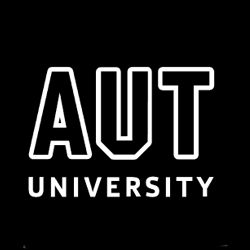
The role of academic literacy in post-graduate hospitality education
Status
Completed: 16 March 2011
Project Details
A project completed in 2011, undertaken by AUT University, to explore the perceptions of postgraduate students, hospitality lecturers and hospitality practitioners of the role of academic literacy in post-graduate hospitality education.
Aims:
The main aims of the project were to:
- investigate stakeholders’ perceptions and expectations of appropriate standards of academic writing at postgraduate level in hospitality education
- identify how challenges in terms of acceptable standards of academic writing at postgraduate level could be addressed.
Methodology:
The project methodology involved:
- a brief review of the literature
- semi structured interviews lasting 30-60 minutes conducted with all participants – students, lecturers and hospitality practitioners.
Research questions:
- What are appropriate standards of literacy in hospitality education?
- Is there consensus among hospitality staff as to acceptable standards of academic writing at postgraduate level?
- How do staff feel challenges in this area should be addressed?
Team

Pat Strauss
Project Leader
AUT University
Warren Goodsir
AUT University
Rachelle Ferguson
AUT UniversityStatus
Funding
$10,000.00 (excl GST)
Key Findings
The key findings from the project included:
- First language speakers of English were over-represented in the student cohort, yet even among this group it was apparent that academic writing was problematic. As well as linguistic and structuring difficulties, it appeared that the educational practices many had experienced in their undergraduate studies had not equipped them to communicate effectively in writing at this level.
- Lecturers were concerned about the lowly status accorded to hospitality in the academic world. It was a matter of concern that hospitality students, particularly at postgraduate level, be judged as the equal of their peers in other fields. While they shared a concern about students’ ability to write effectively they were divided as to how the competing discourses of the academy and the industry should be managed.
- The practitioners were concerned that hospitality education at university level was not sufficiently practical. They did not feel that students’ ability to write effectively was a major concern although they did want graduates to produce clear, succinct texts.
Key Recommendations
The key recommendations from the project included:
Consideration of the type of writing | It is suggested that a clear distinction is made between assignments which are academic in nature and those that focus on the industry. For the former, students are expected to view themselves as academics and use the appropriate language. However, for industry documents a brisk business-like approach is appropriate.
Provision of discipline-specific academic literacy support | Ideally discipline staff should work closely with an EAP practitioner, and academic literacy should become an integral part of papers offered at this level, with the EAP practitioner and the discipline lecturer team teaching on selected sections of papers. This will allow the EAP practitioner to contextualise writing advice in the discipline and students are more likely to see the relevance and necessity of the help offered.
Assistance with assignments | Students appeared confused as to what was required of them in assignments. If an EAP practitioner is involved in a teaching role, discussion of assignments, including the language of the assignment, would form an important part of class work.
Timeliness of feedback on assignments | One of the issues that students raised was that they did not receive feedback on their writing until the first assignment was marked, often well after the half way point of the semester. Early intervention means that students would be in a position to utilise feedback in all their assignments. One possible solution is for students to submit a draft which would then be reviewed by the EAP practitioner and/or the discipline lecturer and students would then be given an opportunity to revise their assignment using the comments provided.
Acknowledgement that writing skills are a ‘work in progress’ | It might be helpful if staff were more lenient in the early months, acknowledging that students are developing their writing skills. However, towards the end of the programme there would be far less tolerance for mistakes. This would ensure that when graduates leave the university they have attained a certain level of competence as far as writing grammatical, succinct and analytical texts is concerned.
A research report prepared by Pat Strauss, Warren Goodsir and Rachelle Ferguson.
(PDF, 710 KB, 31-pages).
- 31 March 2011